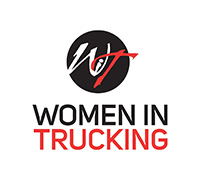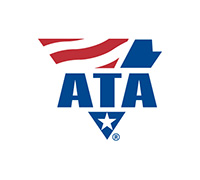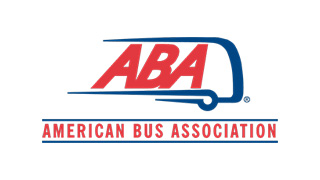“There’s no conflict between profitability and wellness—there’s only a lack of understanding.” — Garrett Steenblik
Driver wellness programs are often seen as costly initiatives, particularly for small businesses. However, the truth is far from that. In this blog, we’ll explore how wellness programs not only benefit drivers but significantly improve the bottom line for both large and small trucking companies.
Profitability and Driver Wellness – The Data Speaks
Research from the American Trucking Association (ATA) shows that for every $1 spent on driver wellness, companies save between $2 to $5 in costs associated with turnover, healthcare, retention, and safety. This data not only highlights the financial benefits of investing in driver wellness but also dispels the myth of conflict, showing that prioritizing driver health is a smart business strategy.
Driver Wellness and The Safety Factor
Studies by the University of Utah reveal that obese truckers are twice as likely to be involved in major accidents due to health-related issues like fatigue and hypertension. This connection between health and safety underscores the importance of wellness initiatives as a means to reduce accidents and improve overall company performance, effectively bridging the gap between profitability and driver wellness.
Driver Wellness and Large Companies
Big trucking companies have the resources to invest in wellness programs, benefiting from lower turnover and accident rates, reduced healthcare costs, and improved retention. By demonstrating that health and profitability are not mutually exclusive, large companies set an example for the industry, reinforcing the idea that investing in driver wellness is essential for sustainable success.
Driver Wellness Challenges for Small Carriers and Owner-Operators
Owner-operators face unique challenges in maintaining their health and businesses. Garrett Steenblik, Founder of Trucker’s Body Shop, is reshaping trucker wellness by delivering innovative health solutions directly to drivers, drawing from his firsthand experience of losing 200 pounds on the road and ensuring they receive the support they deserve.
Garrett further shares his personal experience as an owner-operator:
“As a one-truck owner-operator, I didn’t have enough employees for a company insurance plan, and the healthcare marketplace offered HMO plans that didn’t meet my needs. I opted for contractor’s insurance that claimed to be PPO-like, but I learned the hard way how small business owners can be exploited by hospitals and insurers. I ended up paying $20,000 for an MRI that would have cost just $3,700 out of pocket.”
Garrett’s story highlights how small operators are often vulnerable to exorbitant healthcare costs without the resources large companies enjoy. This is a common problem in an industry where, according to the American Trucking Associations (ATA), about 49% of the 3.5 million truckers in the U.S. are owner-operators. Owner-operators often face barriers to affordable healthcare and wellness programs, despite making up nearly half of the workforce.
Why Owner-Operators Have More at Stake
Owner-operators are at higher risk when it comes to poor health. Garrett further explains:
“I know of an owner-operator who spent $100,000 rebuilding his truck from the ground up, but he didn’t take care of his type 2 diabetes. He lost his leg, his medical card, and his entire business because he didn’t prioritize his health. The burden of healthcare costs and risks is much higher for small business owners, where you have to protect yourself.”
This illustrates how health-related issues can cripple a small operation, making wellness programs even more essential for owner-operators. The risks increase as owner-operators age, with the average age being 59 years old. Maintaining good health is critical as most owner-operators plan to retire around age 69 but may struggle with the physical demands of the job.
Driver Wellness Numbers
Here are some critical statistics to consider:
- Active U.S. Motor Carriers: Over 577,000 registered with the FMCSA that own or lease at least one tractor (as of March 2024).
- Small Carriers: 95.5% operate 10 or fewer trucks. 99.6% operate 100 or fewer trucks.
- Owner-Operators: About 49% of the 3.5 million truckers in the U.S. are owner-operators.
- Average Age: 59 years old.
- Most Common Age to Become Owner-Operator: 38 years old.
- Planned Retirement Age: 69 years old.
- Gender: 94% are male.
These statistics illustrate the significance of driver wellness initiatives for both large companies and owner-operators, further reinforcing the notion that health and profitability are intertwined, thereby eliminating the illusion of conflict.
Current Challenges in the Freight Market
In a time where there is too much capacity, high-profile trucking company bankruptcies, and little room for error on profit margin, it is important to empathize with companies and owner-operators as they have faces many setbacks in the last year:
- Freight Rates: As of October 2024, freight rates are considerably lower than historical averages, largely due to an oversupply of trucks and insufficient demand. The National Truckload Index (NTI) reports rates have dropped significantly.
- Company Bankruptcies: In the last year, multiple long-standing trucking companies have filed for bankruptcy, highlighting the severe financial pressures that even well-established firms face. Some of these companies have been in business for 40 to 100 years.
- High Truck-to-Load Ratios: With many trucks available but fewer loads to fill them, competition has led to decreased rates, further squeezing profit margins.
The Importance of Driver Wellness Programs
Driver wellness programs could be a proactive initiative for trucking companies. In this challenging environment, investing in driver wellness programs can be a critical cost-saving strategy for trucking companies. Benefits include:
- Reduced Turnover Rates: Healthier drivers are less likely to leave, which lowers recruitment and training costs.
- Lower Healthcare Costs: By promoting wellness, companies can reduce healthcare expenditures associated with chronic conditions.
- Increased Productivity: Healthy drivers are more productive, leading to better service levels.
How Trucker’s Body Shop Can Help
Trucker’s Body Shop offers comprehensive health solutions designed specifically for drivers, providing a way for companies to implement effective wellness programs. Here’s how:
- Discounted Health Medicines: Trucker’s Body Shop provides affordable health products, ensuring drivers can access necessary medications without breaking the bank.
- Education and Support: The company focuses on educating drivers about maintaining their health, helping them make informed choices that can lead to better outcomes.
- DOT Certification through Healthy Lifestyle: By ensuring drivers are health-conscious and compliant with DOT regulations, companies can avoid penalties and maintain operational efficiency.
- Sustainable Pricing: Trucker’s Body Shop strives to keep costs low while delivering high-quality health solutions, making it easier for small carriers and owner-operators to invest in wellness.
By incorporating these wellness initiatives, trucking companies can not only safeguard their drivers’ health but also stabilize their own operations in an increasingly competitive market. For more information about how Trucker’s Body Shop can support your company’s health initiatives, visit their website.
No Conflict but a Lack of Understanding Driver Wellness
Trucker’s Body Shop stands at the forefront of solving the perceived conflict between driver wellness and profitability. By offering discounted health medicines specifically tailored for truckers, Trucker’s Body Shop ensures that drivers stay on the road, remain DOT certified, and extend their lives through proper care.
Supporting Driver Wellness through Building Understanding
“Operational costs are crushing the industry, and Trucker’s Body Shop is here to help alleviate some of that burden through proactive trucker health strategies, discount access to medications, and an empathetic view of the current trucking industry.”
Trucker’s Body Shop alleviates the burden on owner-operators and small carriers by providing affordable health solutions that make wellness accessible. Through education, medical support, and sustainable pricing, Trucker’s Body Shop empowers drivers to maintain their health without breaking the bank. As both large corporations and small carriers face rising costs and competitive pressures, investing in driver wellness is one of the most prudent decisions they can make for their business and their people.












